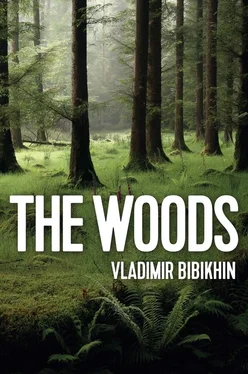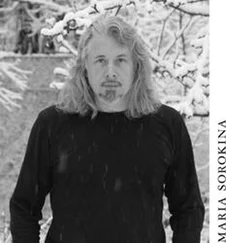Bibikhin’s main interest was in German philosophy, but he also knew and cherished the contemporary French tradition. He read, and even translated, Jacques Derrida, arguing against some of his interpretations. His strategy of writing books in the form of lecture courses targeted at a wide audience may have been a conscious emulation of the strategy of such great French public intellectuals as Lacan and Derrida.
Accordingly, when Bibikhin addresses the current moment, he refers to it, in awe, as a ‘revolution’ or ‘renaissance’. Reminiscences of Peter the Great’s reforms, or of the Italian Renaissance in the fifteenth-sixteenth centuries, help him understand a time of changes in Russia. It is always the extreme effort, the openness of freedom (beyond traditional morality), and festive colour that open everything up. In the Italian Renaissance, erroneously thought by some conservatives (including Losev) to be the beginning of a nihilistic sceptical age, ‘the human essence reduced itself, in philosophical and poetic anthropology, to a few simple traits: selfless love, tireless activity (mostly of the higher faculties of the soul), informed attention to the world.’ 4 Extreme ambition was characteristic of that age: ‘Dante reports […] that the task of his great poem was nothing less than to “lead the living out of their misery to the condition of happiness.”’ 5 It is the scale of the ambition that is important.
However, in every case there comes a default, or a breakdown (sryv) after the event, mostly due to the hubris of human subjects who put all their faith in themselves and disregard the pressures of history, which leads to an avalanche of violence. The description is reminiscent of the German ‘conservative revolution’, only this time combining the liberal and conservative elements.
Bibikhin himself was a ‘Renaissance Man’, with unbelievable energy and willpower (in the 1990s, he produced two book-length lecture courses each year), and an anarchic disdain for convention. The first impression he made was of a slightly lunatic intellectual with a posture of exaggerated humility. This was wrong on both accounts. As mentioned, he was not just a professional translator but also a competent manual worker. And he displayed impressive personal ambition and originality in his philosophical projects.
When we read Bibikhin’s book today, we will probably appreciate his genius, but we need also to be aware of the historical distance, short as it still is. We need to remember that Soviet culture was isolated from Western culture to a greater degree than the ‘normal’ isolation of different cultures such as British and French. American, British, and French books were available, but:
only to a closed academic elite
there was a long delay before they became known
only intellectual blockbusters were available, not routine intellectual discussion.
Libraries had very restricted collections of Western literature on the social sciences and humanities, and the access to some of that was further restricted for ideological reasons. In the 1970s, Bibikhin worked at INION, the Soviet Academy of Sciences’ Institute of Scholarly Information on the Social Sciences. This institution engaged, as mentioned above, in digesting Western literature in the social sciences and humanities, in Russian, by trusted experts, in very small print runs and accompanied by ideological criticism. Bibikhin thus had privileged access to Western scholarship, though he regretted that he heard of Heidegger so very late. His experience at INION put him and his colleagues in the curious position of disengaged observers (which corresponded to his philosophical notion of the ‘energy of rest’). This gave them an odd, decentred, outsider view of twentieth-century Western culture. It is hardly surprising that certain interpretations (like Bibikhin’s reading of Wittgenstein) seem often really quite strange. He studied the reception literature only afterwards: the first encounter of Russian thinkers with Western thought was without critical context.
Conversely, the West knew very little about Russian intellectual life. There was a discrepancy not just in the scholarship, but also in the general approach of critically thinking intellectuals, which was libertarian (anarchic/conservative) in Russia, and ethical, rights-orientated, and left-leaning in the West.
After the collapse of the USSR in 1991, the situation did not change overnight and, lacking the Internet, Bibikhin in the 1990s was still proceeding in a bibliographical vacuum, with limited knowledge of intellectual concerns outside Russia. This did not prevent him from addressing the theme of environmental, biological philosophy in the present book. As you may see, many references in the book come from the Encyclopaedia Britannica. This might seem unprofessional, but we need to bear in mind the situation and genre of the work, the fact that Bibikhin did not live to prepare it for printing, and to see that he did, nevertheless, get some key things in contemporary biology right.
Let me turn to the present book in more detail. There is little point in rehashing a work in a foreword, but perhaps a few words about Bibikhin’s methodology, implicit assumptions, and conclusions here will be apposite. This volume contains one of his most coherent, extensive, and wideranging lecture courses, and includes most of his concepts and philosophical preoccupations. That is why it was singled out for translation.
Bibikhin’s book has in fact two subjects, one logically following from the other. The first one, as announced in the title, is the concept of matter, ‘materia’, or in Greek, hyle. Because the word derives etymologically from wood or timber, Bibikhin enacts a phenomenological reconstruction of the notion by referring it not to an inanimate stuff that we master, but to the element of woods that surround and even entrance us. We are captivated by the forest, but we have learned to carve a space for form within it. We return to intoxication with the forest when, for instance, we smoke and drink. Thus, Aristotelian ‘matter’ does not exist by default but is an important, substantial element of the world.
[F]or humans there is no other law; because they are faced with substances in which they drown. Matter as the power of the forest, the potency of its materiality: the smoke of tobacco, the wine of Bacchus, narcotics, intoxication, ecstasy. The wood of the forest is the matter from which all else derives; it is not the timber of the carpenter but like passion, the race, the grove of Aphrodite, the smoke, the aroma of tobacco, the inebriation of Bacchus, of Dionysos, the intoxication of coca. The forest, then, is conflagration, the fire of passion. (This edition, p. 16)
Thus, matter is primarily living matter, which allows Bibikhin to spend most of the book discussing the essence and evolution of life, again from the phenomenological point of view. The phenomenology is backed, first, by a lengthy hermeneutic reading of Aristotle’s The History of Animals, which takes seriously, in a philosophical way, Aristotle’s descriptions of animal life, which have normally been treated as irrelevant mistakes. Secondly, Bibikhin reads some classical literature in evolutionary biology (Darwin, Tinbergen, Lorenz, Dawkins, as well as the great Russian evolutionary thinker Lev Berg).
The main questions Bibikhin poses here concern the reasons for the emergence of sexual reproduction, and, related to it, the reasons for the dual nature of life, split between the self-reproducing genes and the proteins. Bibikhin brilliantly summarizes the complex biological findings into a dualistic picture of the world, torn between strict repetition (the form) and free plasticity (of the matter), in the same way that the matter itself is relatively segregated into the light and the particles.
Читать дальше












